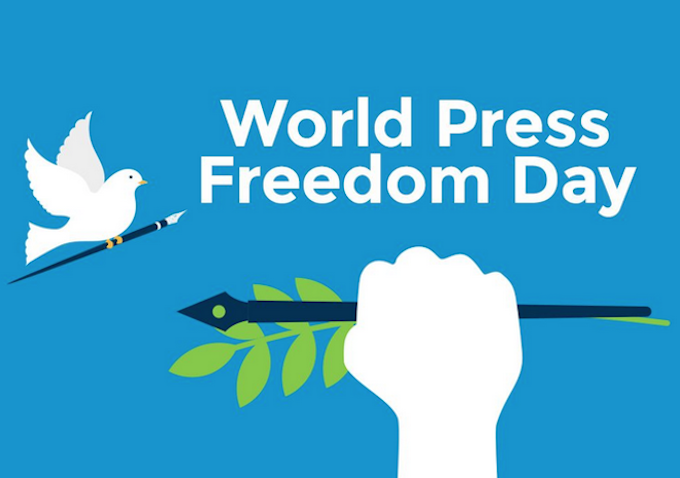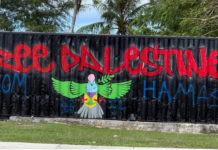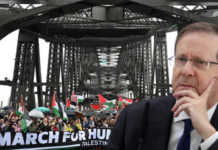
SPECIAL REPORT: By Joyce McClure in Guam
I spent five years as the lone journalist on the remote Pacific island of Yap. During that time I was harassed, spat at, threatened with assassination and warned that I was being followed.
The tyres on my car were slashed late one night.
There was also pressure on the political level. The chiefs of the traditional Council of Pilung (COP) asked the state legislature to throw me out of the country as a “persona non grata” claiming that my journalism “may be disruptive to the state environment and/or to the safety and security of the state”.
- READ MORE: Pacific media freedom and news ‘black holes’ worsen for World Press Freedom Day
- Pacific Media Watch reports
- Media freedom in the Asia Pacific region
During a public hearing of the Yap state legislature in September 2021, 14 minutes of the 28-minute meeting was spent complaining about an article of mine that reported on the legislature’s initially unsuccessful attempt to impeach the governor.
One politician then posted about me on his Facebook page, under which a member of the public posted a comment saying I should be assassinated.
American Bill Jaynes, editor of the Kaselehlie Press in Pohnpei, one of Yap’s sister states in the Federated States of Micronesia (FSM), has had his share of death threats over the years, too.
Several death threats
“In the 15 or so years I’ve been at this desk I have had several death threats,” he said.
“Early on in my tenure, some angry individual carved a request for me to perform an act of physical impossibility into the hood of my car which then rusted for posterity. Most of that was during the early days before I came to be trusted to view things from an FSM rather than a foreigner’s point of view and to handle things factually rather than sensationally.”
Freedom of the press is included in both the FSM and the Yap State Constitution, but as Leilani Reklai, publisher and editor of the Island Times newspaper in Palau and president of the Palau Media Council, says: “Freedom of the press in the constitution is pretty on paper but not always a reality.”
These incidents are shocking, but sadly are not isolated. Journalists in the Pacific face imprisonment, loss of employment and banishment from their homes.
“While there might not be assassinations, murders, gagging, torture and ‘disappearances’ of journalists in Pacific island states, threats, censorship and a climate of self-censorship are commonplace,” professor David Robie, founding editor of Pacific Journalism Review, wrote in a 2019 article for The Conversation.
A Fijian journalist, who asked to remain anonymous, said that after he posed questions to a politician during a public forum, the politician replied that he knew where the reporter lived. The following day, the reporter’s car was broken into.
Soon after, the reporter was told that if he didn’t stop being critical, he would be kicked out of his job “and can go bag groceries instead” and he was evicted from his housing. The reporter believes all of these incidents stemmed from the questions he asked of the politician.
“Within one week my life changed completely,” he said. “I do not see a future for me or any other journalist who is curious and questioning to make a career in journalism in Fiji.”
Fiji ranked 55th in world
According to the Reporters Without Borders’ 2021 World Press Freedom Index, Fiji is ranked as 55th out of 179.
The index highlights the “draconian” Media Industry Development Decree, introduced in 2010 and turned into law in 2018. “Those who violate this law’s vaguely-worded provisions face up to two years in prison. The sedition laws, with penalties of up to seven years in prison, are also used to foster a climate of fear and self-censorship,” said Reporters Without Borders.
In 2018, senior journalist Scott Waide of Papua New Guinea was suspended by EMTV after the airing of his report critical of the government for purchasing 40 luxury Maseratis and three Bentleys to drive attendees during the APEC conference.
Reinstated after a public and media outcry, Waide stated during an interview on ABC’s Pacific Beat programme: “Increasingly, not just EMTV, but nearly every other media organisation in Papua New Guinea has been interfered with by their boards or with politicians, or various other players in society.
“They’re doing it with impunity. It’s a trend that’s very dangerous for democracy.”
Daniel Bastard, Asia-Pacific director of Reporters Without Borders, said the situation is complicated by how small and connected many Pacific nations are.
“The fact is that political leaders are also economic bosses so there’s a nexus. It’s symptomatic of the small journalistic communities in the Pacific islands that need to deal with the political community to get access to information. They have to be careful when they criticise knowing the government can cut advertising, publicity, etc. There’s still a strong level of intimidation.”
While there are particular dangers faced by local journalists, foreign reporters living in the Pacific are not safe either.
Denied renewal of work permit
Canadian Dan McGarry, former media director of the Vanuatu Daily Post and a resident of the island nation for nearly 20 years, was denied renewal of his work permit in 2019. The reason given was that his job should be held by a local citizen.
But McGarry said he believed it was politically motivated due to his reporting on “Chinese influence” in the small nation. He was then denied re-entry to Vanuatu after ironically attending a forum on press freedom in Brisbane.
Regional and international news organisations came to his defence and the court granted McGarry re-entry, but the newspaper’s appeal to have his work permit renewed is ongoing.
I have written about some sensitive and difficult topics and like to think of myself as pretty fearless. In 2018 I wrote about illegal fishing by Chinese commercial fishing boats around the Outer Island of Fedrai. That coverage resulted in the expulsion of the fishing vessel and significant political consequences.
I’ve written about issues in the customs and immigration processes in FSM, that were potentially jeopardising tourism to Yap, which is so important to so many people’s livelihoods, and also about a huge and controversial proposed resort that would have seen thousands and thousands of Chinese tourists flown in to that tiny island on charter flights.
These stories matter and just because some Pacific nations are small and remote does not mean that they do not need or deserve the scrutiny of a free press.
But eventually, the threats to my safety were too much to handle. I spent too much time looking over my shoulder, living behind locked doors and never going out alone after dark.
In mid-2021, I moved to Guam for greater peace of mind where I am continuing to write about this largely invisible, but crucial part of the world.
Joyce McClure is a freelance journalist based in Guam. This article was first published by The Guardian’s Pacific Project and has been republished with permission.










































